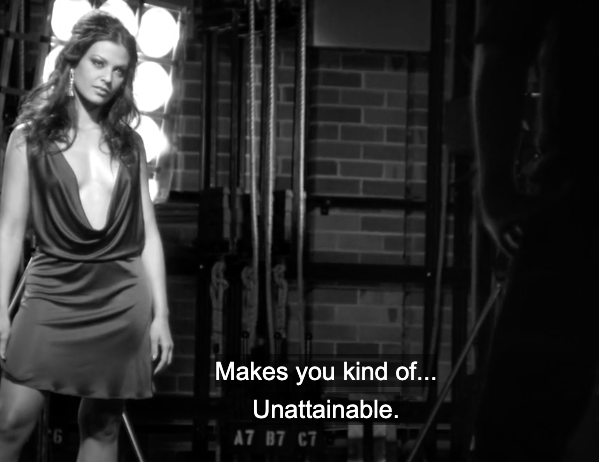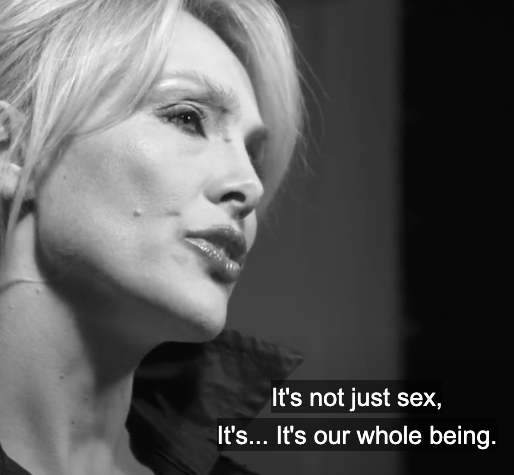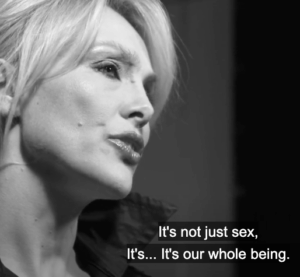Some nights, after sex, a woman doesn’t feel radiant. She doesn’t feel claimed or cherished. She feels like something sacred was left behind in rumpled sheets and didn’t come back. Not because her body betrayed her – but because love did.
We’ve been told to be sexy, never sacred. To serve fire, but not be warmed by it. And so, after the heat fades, what’s left is not pleasure, but a chill. A quiet shame – not of skin, but of spirit.
She Came, But Did She Come Home to Herself?
There are moments after sex when a woman may feel something heavy settle into her chest. Not the dreamy kind of exhaustion or the sweet confusion of closeness, but a thick, inexplicable shame. It creeps in quietly, making her question herself, her body, her choices. But what if this shame isn’t about the act at all? What if it stems not from the body, but from the absence of love, presence, and deep respect?
When the Afterglow Feels Cold
There is a kind of ache that comes not from the body, but from the soul recoiling after being touched without reverence.
It doesn’t always arrive like a storm. Sometimes it tiptoes in, hours after the moans and the mess, as you brush your teeth or lie awake beside someone who doesn’t know your middle name – and doesn’t care to.
It’s a whisper that says: “I gave something away, but I wasn’t met in return.”
This feeling – this sense of being dirtied, dimmed – is not about biology. It’s not about sex itself. It’s about being unmet. About love that never showed up to the scene, leaving the body to carry an intimacy too heavy to hold alone.
Our culture teaches us to chase eroticism like it’s a performance. But what we really crave is resonance. That trembling, rare moment when someone doesn’t just want your body – they want your presence.

Shame Is Not the Body’s
Shame has a way of slipping under our skin like a bad memory. But often, it’s not the act that causes it. It’s the absence. The absence of care, of presence, of tenderness.
A woman may walk home, heels in hand, the night still humming on her skin – and feel utterly unseen. It’s not because her pleasure was fake. It’s because her personhood was invisible.
The shame that lingers isn’t about what her body did. It’s about what her heart didn’t receive.
When the Body Feels Like a Stranger
Women are not born ashamed of their bodies. Little girls run naked on beaches, dance in mirrors, ask blunt questions about nipples and belly buttons. Shame arrives later, wrapped in silence, rules, and warnings. Don’t sit like that. Don’t laugh too loud. Cover up. Watch yourself.
By the time many of us reach adulthood, we’ve internalised a long list of what’s “appropriate”. And nowhere is this pressure more painfully felt than in our sexuality. Suddenly, pleasure must be “earned”. Desire must be “justified”. If we enjoy too much, we’re “easy”. If we want love with it, we’re “clingy”.
The result? A mind that wants, a body that responds, and a heart that whispers, something about this feels wrong. Not because sex is wrong. But because we haven’t been taught how to stay connected to ourselves during it.
Shame Is Not About Sex
Let’s name the moment: post-sex shame. That aching, slippery sense of feeling dirty, empty, or foolish. We often mistake this as guilt over the act. But more often, it’s not about sex at all.
It’s about:
- Saying yes while our body said maybe.
- Wanting closeness but settling for attention.
- Being touched but not met.
- Performing connection when we actually felt alone.
When love – true, unguarded love – is exiled from our most intimate moments, sex becomes transactional. Not always in the literal sense, but emotionally: I give, you take. I moan, you win. I disappear, and no one notices.
This is where the shame creeps in – not because the body is dirty, but because the soul is untouched.
And when we grow up in a world that teaches us that desire is dangerous, that pleasure must be justified, or worse – that we must serve it to earn affection – we stop listening to the part of us that says: “I deserve to be met.”
When We Cut Off Love, Shame Moves In
Shame only thrives when something vital is missing. And in this case, it’s not modesty or virtue. It’s love. Not love from the other person, but the deep internal knowing:
I am worthy.
When we’re not rooted in that, even consensual sex can feel like a transaction that empties us.
When love for ourselves is severed, our bodies become stages, not homes. We stop asking what we need, and start wondering what will make us wanted. The body becomes something to be used, not cherished.
And afterwards, when the lights are out and the voice is quiet, that ache in the chest isn’t always regret. Sometimes, it’s a cry for reconnection.

Reclaiming Sacred Pleasure
There is no healing in pretending. No freedom in forcing yourself to enjoy what your heart is not ready to hold. Healing comes in the permission to feel everything – even the ache, even the confusion.
Sex, when it’s whole, is a meeting of energies, not just bodies. It’s where the body becomes a bridge to the soul. But for many women, this bridge has been burned so often, they forget it ever existed.
To reclaim that sacredness isn’t about celibacy or caution. It’s not even waiting for “the one.” It’s about reverence. For your body. For your yes. For your no. For your in-between.
It starts with:
- Listening to our body’s yes and no.
- Letting go of roles and tuning into real feelings.
- Learning that self-respect is not prudishness, but clarity.
- Replacing judgment with curiosity: Why did I say yes? What did I hope for?
Reclaiming sexual joy means coming home to ourselves in every touch, every breath, every decision. It means refusing to abandon ourselves in the name of being liked, or not being alone.
A New Kind of Desire
What if we longed not just to be wanted, but to be witnessed? Not just to be touched, but to be felt?
The body doesn’t forget, but it can forgive – when met with presence.
And so, if you’ve ever walked away from an encounter and felt less, not more – know this: the shame isn’t yours. It belongs to a world that hasn’t yet learned how to love what is sacred.
Let us meet ourselves again, first. Then let others follow. Yours, Ksenia Trefilova




